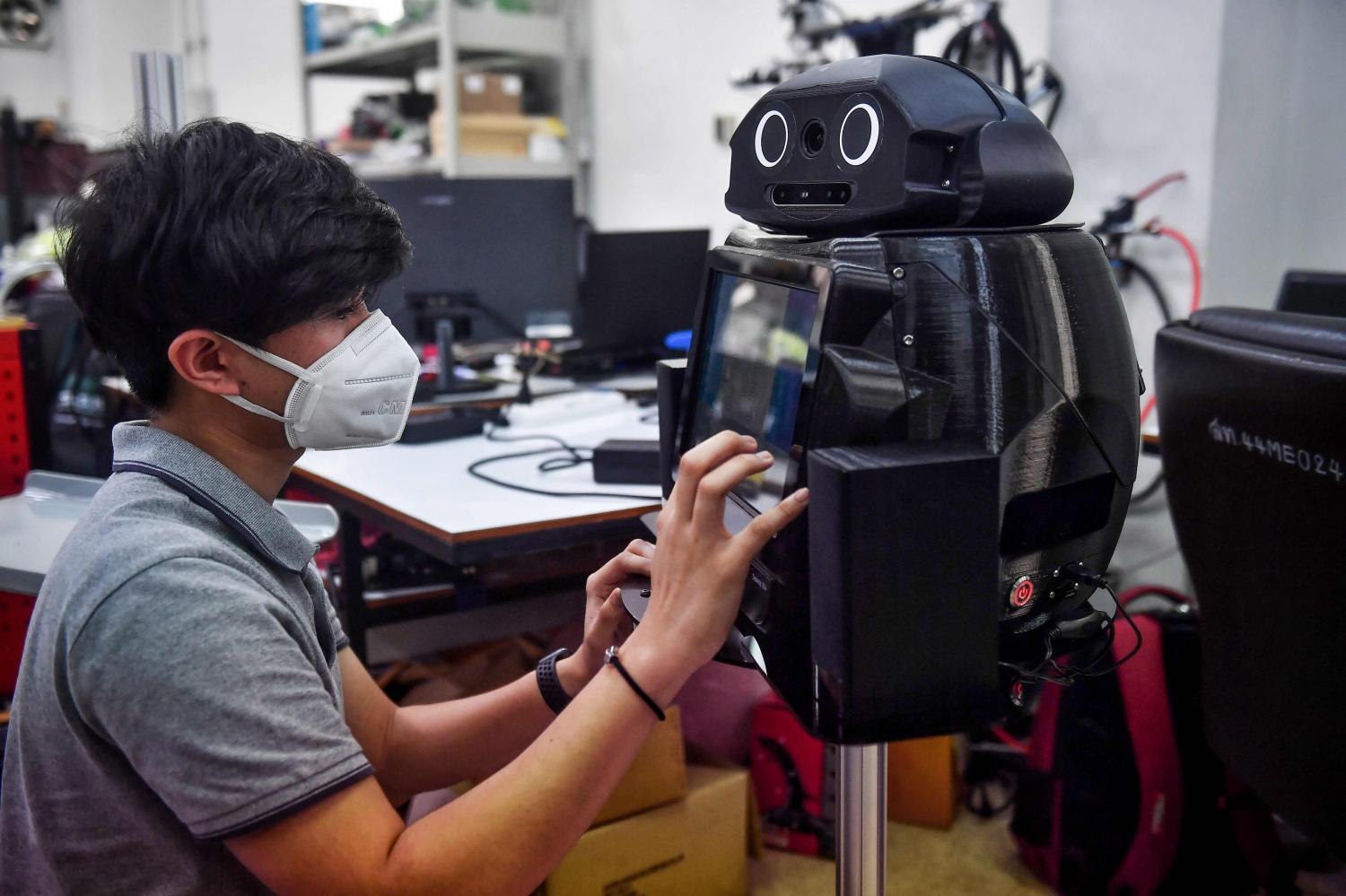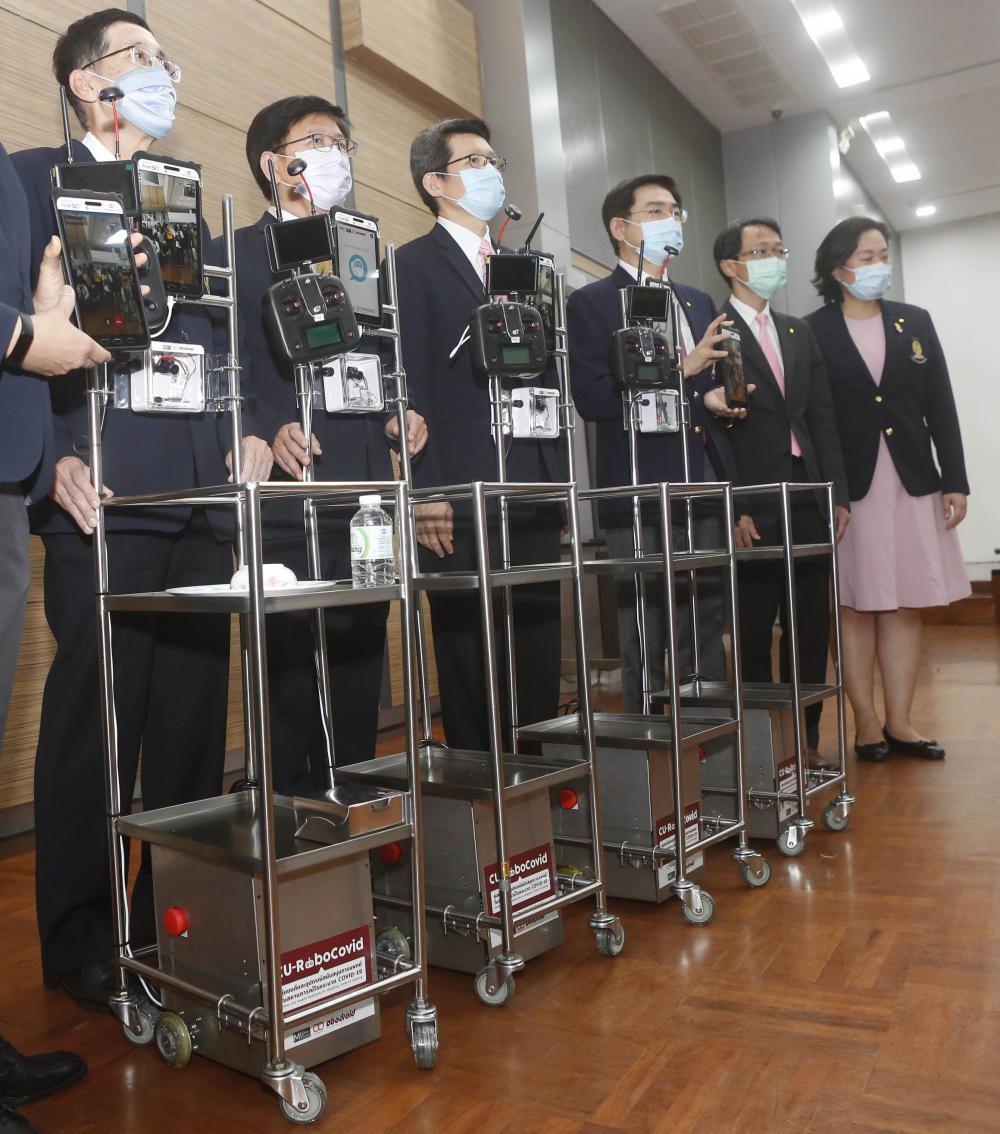
Chulalongkorn University has launched a line of robots to assist medical staff in providing telehealthcare to Covid-19 patients as the number of local infections continues to rise.
"The country is now at war with a virus which can infect anybody. We will send an army of robots to help hospitals nationwide," Bundhit Eua-arporn, the president of Chulalongkorn University, told a press conference yesterday at Chulalongkorn University Alumni Association (CUAA).
The launch of the robots came after the university's Covid-19 Emergency Operation Centre introduced a strip test last month to lift the burden on overworked medical staff. Patients can undergo screening by giving blood via a prick to the fingertip.
The CU-RoboCovid project will use machines to support medical personnel on the front line to reduce the risk of infection and increase their efficiency in combating the contagion.
Prof Supot Teachavorasinskun, dean of the Faculty of Engineering, said their "Ninja" (so-called due to their black colour) robots can provide sophisticated telemedicine services and measure vital signs.
"They are normally used with stroke patients, but they have been adapted for use with Covid-19 patients at Bamrasnaradura Infectious Diseases Institute and Rajavithi Hospital. However, the production of this type of robot is more time-consuming," he said.

Experts at Chulalongkorn University show off robots that can help to deliver food and medicine to patients. Pattarapong Chatpattarasill
Meanwhile, Prof Supot said "Pinto" (due to their small size) robots will help medical staff deliver food and medicine and perform other simple tasks.
"In the future, telemedicine will play a crucial role in our public health system," he added.
Asst Prof Witaya Wannasuphoprasit, director of the International School of Engineering, said the Pinto robots "cater to the demands of medical staff because hospitals have limited space. We can't use big equipment, so we managed to turn a food cart into a mobile and interactive robot. Our first prototype is now working at Ramathibodi Hospital".
CUAA is also launching a crowdfunding campaign. Its president Viboon Rerksirathai said the association has donated seed money of one million baht to produce the first batch of Pinto robots.
"They are currently being piloted at Ramathibodi Hospital, King Chulalongkorn Memorial Hospital and Vachira Phuket Hospital. We plan to deliver another 103 Pinto robots worth around five million baht to 50 hospitals nationwide by the end of April," he said.
